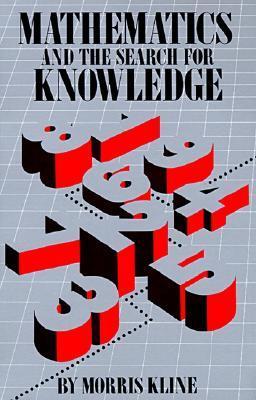What do you think?
Rate this book


263 pages, Paperback
First published January 1, 1985
From his study of mathematical method he isolated in his Rules for the Direction of the Mind the following principles for securing exact knowledge in any field. He would accept nothing as true that was not so clearly and distinctly so to his own mind as to exclude all doubt. He
would divide difficulties into smaller ones; he would proceed from the simple to the complex; and finally, he would enumerate and review the steps of his reasoning so thoroughly that nothing would be omitted.
Galileo stressed that the way to obtain correct and basic principles is to pay attention to what nature says rather than what the mind prefers.
...
Yet the modernist Descartes did not grant the wisdom of Galileo's reliance on experimentation. The facts of the senses, Descartes said, can only lead to delusion. Reason penetrates such delusions. From the innate general principles supplied by the mind we can deduce particular phenomena of nature and understand them. In much of his scientific work Descartes did experiment and require that theory fit facts, but in his philosophy he was still tied to truths of the mind.
...electromagnetic theory is entirely a mathematical theory illustrated by a few crude physical pictures. These pictures are no more than the clothes that dress up the body of mathematics and make it appear presentable in the society of physical sciences. This fact may disturb or elate the mathematical physicist, depending on whether the mathematician or the physicist is dominant.
...
We can appreciate now what Alfred North Whitehead meant when he said, "The paradox is now fully established that the utmost abstractions [of mathematics] are the true weapons with which to control our thought of concrete facts."
To account for the motions of the planets in their orderly elliptical paths, Sir Isaac Newton provided a theory of gravitation whose physical nature neither he nor his successors for three hundred years have explained. Sense perception in this case has proved useless.
Purely mathematical considerations led Clerk Maxwell to assert that there are electromagnetic waves that are not at all detectable by any one of the five human senses. Yet the reality of these waves can hardly be questioned; every radio and television set proclaims their reality. Maxwell also concluded that light is one type of electromagnetic wave. In this case, one could say that a mystery was replaced by mathematics.
...physical axioms must be used cautiously. This was emphasized by Bertrand Russell in his The Scientific Outlook (1931). He gave the following example. If one starts from the assumptions that bread is made of stone and that stone is nourishing, one can logically conclude that bread is nourishing. The conclusion can be verified experimentally. However, needless to say, the assumptions are absurd.
On the other hand, mathematics proves to be even sturdier than the physics it purportedly describes. Joseph Fourier (1768-1830) wrote a complete and elaborate mathematical theory of the conduction of heat that seemed to apply to the caloric theory that heat was a fluid, a theory that has long since been discarded. As Edmund Burke put it, "But too often different is rational conjecture from melancholic fact." However, Fourier's mathematics has proved to be essential in the analysis of musical sounds and other phenomena.
There is indeed some reason to question what mathematics tells us about what is real.
Einstein, Planck, and Schrodinger objected to the probabilistic interpretation. Einstein stated his objections in a paper of 1935. His argument was that quantum theory is approximate and incomplete:I reject the basic idea of contemporary statistical quantum theory, insofar as I do not believe that this fundamental concept will prove a useful basis for all of physics. . . . I am in fact firmly convinced that the essentially statistical character of contemporary quantum theory is solely to be ascribed to the fact that this theory operates with an incomplete description of physical systems.
Although the probabilistic interpretation is now accepted, perhaps with further investigation one might be able to determine the precise location of the electron with certitude. However, according to one of the novel features of quantum theory, some indeterminism is unavoidable. This is the principle of uncertainty enunciated by Werner Heisenberg...
As John Herman Randall says in the The Making of the Modern Mind,
"Science was born of a faith in the mathematical interpretation of Nature, held long before it had been empirically verified."
....
The problem has been posed repeatedly, notably by Albert Einstein in his Sidelights on Relativity:Here arises a puzzle that has disturbed scientists of all periods. How is it possible that mathematics, a product of human thought that is independent of experience, fits so excellently the objects of physical reality? Can human reason without experience discover by pure thinking properties of real things?
Although Einstein understood that the axioms of mathematics and principles of logic derive from experience, he was questioning why the many deductions from these axioms and principles, which are made by human minds, should still fit experience.